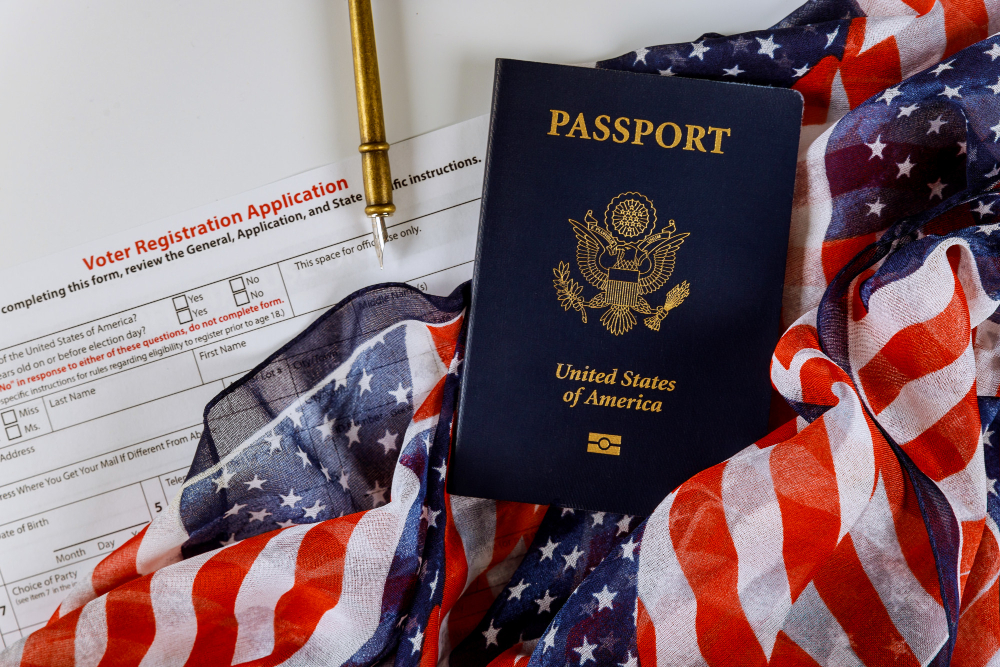Whether it’s amicable or not, divorces in Georgia are hard. Litigation makes it harder. But mediation can be the key to a more civil, more efficient divorce – one that allows you to move on with your life sooner than a trial would. That is not to say, however, that divorce mediation in Georgia is easy. It’s just more efficient and allows you, rather than a judge, to determine – through negotiation and compromise – decisions that will affect you. You should go into the mediation process knowing what to expect and not to expect.
At Synergy Law and Mediation, LLC, our divorce attorney based in Gwinnett County will guide you through the mediation process. In divorce mediation, you still get to be represented and have someone by your side to provide smart legal advice. Contact us at 770-910-7161 today if you are considering a divorce, and we will schedule a 15 minute discovery call to review your best legal options in your unique situation.
Understanding Divorce Mediation in Georgia
Divorce mediation is a way for married couples to work through their separation and determine how they will handle issues related to their divorce without going before a judge and/or jury. Issues include anything from child custody, child support, spousal support, and the division of assets and debts.
For many couples, divorce mediation is a preferred method as it is typically less expensive than litigation and offers more space to provide their say-so in the final agreement. However, to be enforceable in most jurisdictions, the final agreement must be reviewed and approved by a family court judge.
Obtaining approval from a judge is generally a simple process. Most judges will not dispute the parties’ agreement as long as it is legal and appears fair. They are also more likely to approve mediation agreements when both parties are represented by counsel.
Who is Most Likely to Benefit from Divorce Mediation?
Mediation is preferred in cases where both parties are:
- Agreeable to the process
- Open to what the mediator has to say
- Flexible and communicative
- Forthright with their assets
Mediation is not a good idea in cases involving emotional or financial abuse or domestic violence.
What Roles Do Divorce Lawyers in Georgia Play in Mediation?
Parties to mediation are allowed to have an attorney represent them throughout the process. Although not required, it is very beneficial to the parties and the process. The attorney can play an active role by speaking on behalf of their client, presenting evidence to the mediator, and negotiating with the attorney for the other spouse.
Lawyers can also be divorce mediators. When this is the case, the lawyer is not a representative of either party but a neutral mediator. Their role as divorce mediator is to facilitate talks, negotiations, and compromises to come to an agreement and not to represent any party’s interests.
Private versus Court-Ordered Divorce Mediation in Georgia
Married couples facing a divorce can agree to enter into mediation on their own free will. In most cases, this will involve agreeing upon and hiring a mediator who has no connection to either party. The spouses will generally split the fees and costs associated with the mediation.
In many jurisdictions, the parties are ordered by the court to participate in mediation before the court will hear issues regarding child custody, child support, spousal support, or asset division. Court-ordered divorce mediation may be available for free or at a reduced rate. The parties to the divorce may or may not have a say in who will mediate and when/where the mediation will be held.
When court-ordered mediation fails, the parties must appear before the court where a judge will rule on any outstanding, undecided issues. When this happens, the parties will be bound by the rules of the court and the court’s order.
Issues Addressed in Georgia Divorce Mediation
Divorce mediation can cover most issues related to the dissolution of the marriage, making it unnecessary to go before a judge if all issues are resolved. The main topics of concern addressed in mediation are the same as in any divorce: child custody, child support, alimony, and asset division.
Child Custody & Parenting Plans
Child custody and parenting plans are hot topics in most divorces involving minor children. Mediation can help address these issues and both parties can have a say regarding how the children will spend their time as well as who is responsible for making decisions regarding their needs.
In most jurisdictions, there are two types of custody that will be addressed: legal and physical. The parent with legal custody is responsible for decisions regarding healthcare, religion, and education, and usually both parents share joint legal custody. Physical custody is custody of the actual child, and a parenting plan is used to address who gets the child(ren) on which days or dates and/or for certain events.
Child Support
Both parents are legally responsible for costs associated with raising their children. In cases of divorce, one parent can be ordered to pay child support to the other parent in an attempt to ensure both parties are equally vested in the care of the children. The way in which child support is calculated varies pursuant to the jurisdiction, as each state will have its own formula to determine the amount that should be paid.
Factors that go into the consideration of child support in most states include:
- Number of children being supported
- Whether or not either party pays for insurance for the children
- Whether or not either party pays for childcare for the children
- Income of each spouse
- Time the children will spend with each parent
- Special needs of the children
Each case is unique, and so other matters may be considered when child support is calculated.
Asset Division
Mediation can be useful in helping the parties agree who gets what assets. Assets to be distributed are only those considered as marital property. Marital property is property obtained while married, so any assets brought into the marriage or inheritance obtained while married are typically not considered marital property.
Marital property includes:
- Marital home
- Motor vehicles
- Jewelry
- Bank accounts
- Retirement accounts
The length of the marriage is often key in determining asset division, as well as whether or not the state is one of equitable distribution or community property. In the former, division of assets is based on what’s fair while in the latter, it’s based on what’s equal (50/50 split).
Asset division can also get tricky, especially when one party brought assets into the marriage and used those assets during the marriage, like a vacation home that gained in value due to home improvements made during the marriage. It can also be a subject of contention if it is believed one party is hiding assets.
Debt Division
Equally important to asset division is debt division. Who will owe what after the divorce is final? Matters to be addressed include debts like:
- Mortgage debt
- Credit card debt
- Motor vehicle debt
Some of the debt can be paid off through the divorce. Real estate and vehicles can be sold to pay off outstanding loans or the equity can be used to pay other debts, like credit card debt.
Pros and Cons of Divorce Mediation in Georgia
Just as many reasons exist for one couple divorcing to use mediation as reasons exist for another couple not to use mediation. Here are some advantages and disadvantages to consider before you decide whether or not to try divorce mediation in Georgia.
Pros of Divorce Mediation
- Mediation can help you navigate the issues. Even when it’s emotionally hard to do so, a mediator can help move the negotiations along and keep you on track.
- Mediation allows you to better control the outcome. You and your former partner can determine what the divorce agreement says and does as opposed to a judge doing it for them.
- Mediation saves you money. Though you will still likely have to pay the costs of mediation, those costs do not compare to what the costs of litigation would involve. For example, you may have experts provide their knowledge and testimony on things like financial matters and co-parenting. In mediation, you would share the costs while at trial, you would pay for your own.
- Mediation saves you time. Mediation tends to resolve your divorce faster than litigation, which is reason enough for many divorcing couples to choose it.
- Mediation lets you start fresh without bitterness. Whether you have kids or not, mediation is a way to negotiate your divorce in a setting where you can be both frank and civil with your soon-to-be ex-spouse. By trying to minimize bitterness, you can start your post-divorce life on a more positive note.
Cons of Divorce Mediation
- Mediation still costs money. Mediation is not free, even if court-ordered, you may still have to cover the mediator’s fees.
- Mediation is not suitable for everyone. If there’s an imbalance of power between the couple, like one spouse routinely bullies the other spouse or engages in any type of abuse, mediation probably is not an adequate means to a divorce.
- Mediators cannot provide legal advice. If you want representation, you still need to hire your own lawyer. Representation during mediation is just as important as it would be in litigation. You want to make sure any divorce agreement is fair and upholds your interests.
Contact a Divorce Lawyer in Gwinnett County Today
Divorce happens. At Synergy Law and Mediation, LLC, our divorce attorney wants to help you obtain a fair and just divorce through the most effective and efficient means possible. Divorce mediation works well in many scenarios. Contact us by filling out the online form or calling us at 770-910-7161 to schedule a 15 minute discovery call. We will discuss your options in an open and direct manner to help you make an informed decision on how best to handle your own divorce in Georgia.
Our Divorce Attorney is also a certified mediator. Click here for more information on our mediation services or call 770-910-7161.




